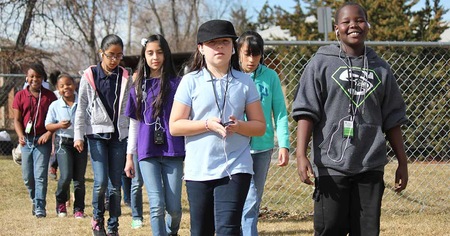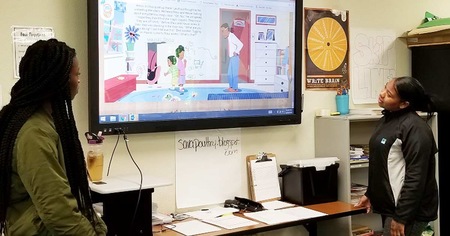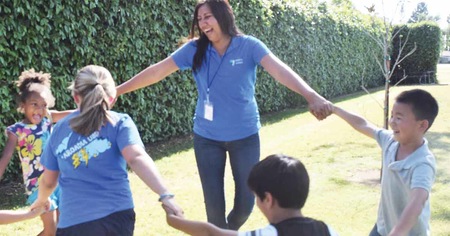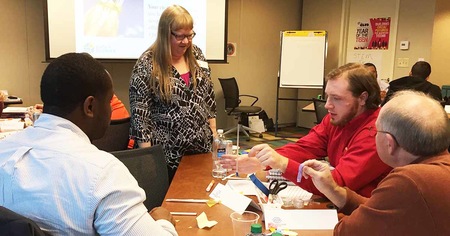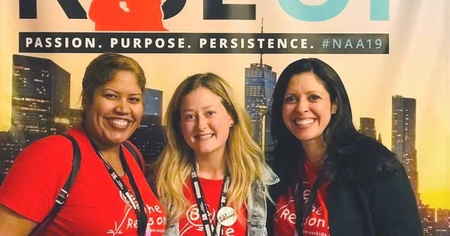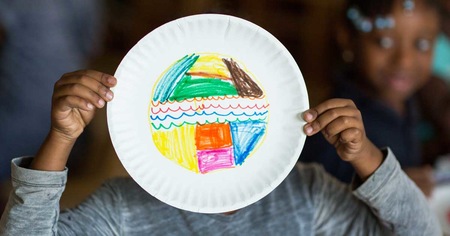Professional Development
NAA publishes fresh, new content every week covering a wide variety of topics related to the field of aftershool. In addition, NAA offers a variety of opportunities for virtual professional development (PD) through meaningful content, conversations and connections. Click here to see full descriptions of virtual PD offerings.
Building Education Career Pathways in Afterschool
Tuesday, 16 April 2019 10:04Operating in partnership with NYC Men Teach, the cohort-based ExpandED Schools Pathways Fellowship program is designed to recruit, support, and train men of color interested in pursuing education or youth development careers.
Battling Boredom in Afterschool: How to Get Kids Engaged in Learning While Being Physically Active
Tuesday, 16 April 2019 09:55Afterschool programs can contribute greatly to boosting academic performance, promoting physical activity, and providing kids with a safe and nurturing environment.
National Center on Afterschool and Summer Enrichment Shares Research on Adverse Childhood Experiences
Tuesday, 09 April 2019 09:38To build awareness of research and promising practices in the field of school-age child care, the National Center on Afterschool and Summer Enrichment (NCASE) has shared Adverse Childhood Experiences and the School Age Population: Implications for Child Care Policy and Out-of-School Time Programs.
Save the World: A TEENsy Bit at a Time
Tuesday, 09 April 2019 00:00On Sundays in Los Angeles, if I'm not at an awesome afterschool conference somewhere else in the country, I pick up my golden turmeric latte from my local corporate coffee chain establishment and sit down with two sections of The New York Times: Review and Business.
Taming Turnover: Is Manager Mindset Thwarting Your Success?
Tuesday, 02 April 2019 09:10I love the game "2 Truths and a Lie." Let's play! Spot the falsehood:
Finding Your Purpose and Potential with Click2Science
Tuesday, 26 March 2019 00:00I bet you know the purpose or mission of your program.
Passion, Purpose, Persistence: Highlights from NAA19
Thursday, 21 March 2019 16:53Last week, a record-breaking attendance of more than 2,000 afterschool professionals gathered in the Big Apple for four days of learning, networking and inspiration. Here are some of our favorite highlights.
Addressing Adverse Childhood Experiences in Out-of-School Time
Tuesday, 19 March 2019 11:52Out-of-school time (OST) programs can play a role in mitigating and preventing Adverse Childhood Experiences (ACEs), which are disruptive to a school-age child's academic and social development.
The Modern-Day Family & Your Program’s Registration Process
Tuesday, 19 March 2019 10:34Who is the modern-day family? Well, they aren't quite as futuristic as the Jetsons, with their robot maid, but they are using smartphones and computers more than ever before.
SEL for Kids Begins with Adults
Tuesday, 12 March 2019 10:45Research suggests structured, strengths-based afterschool programs that are coordinated with schools and communities and staffed with knowledgeable and competent adults are ideal settings to promote positive experiences and youth social and emotional development.
National AfterSchool Association • 2961A Hunter Mill Road, #626 • Oakton, VA 22124 • info@naaweb.org


